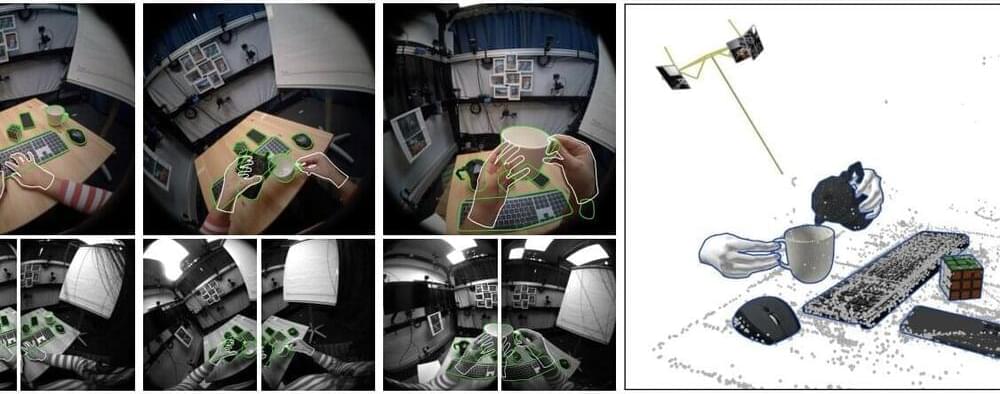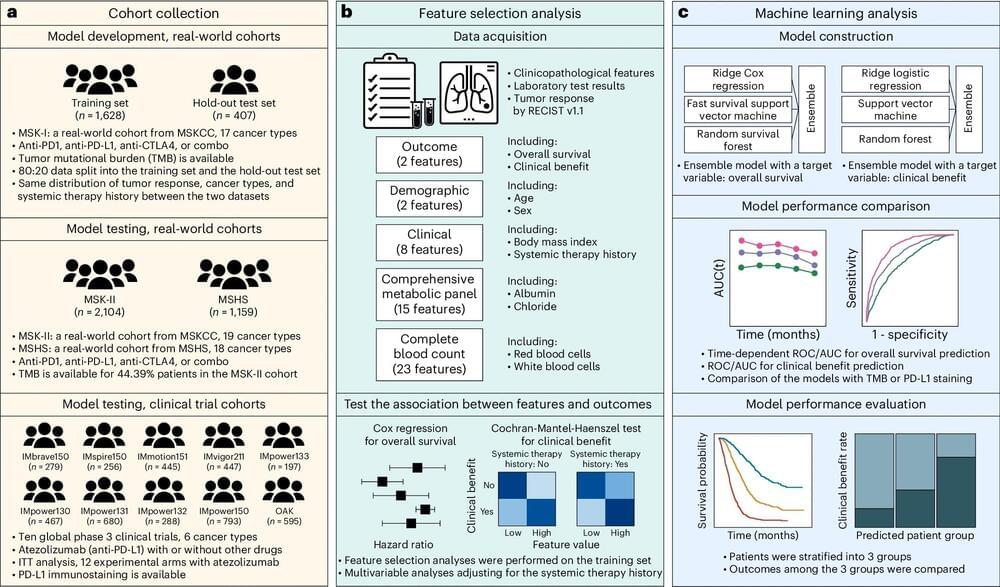Nvidia’s new chips target the gaming, robotics, and autonomous vehicles industries, partnerships with Toyota and others highlight Nvidia’s AI expansion in self-driving technology.
Category: robotics/AI – Page 152
A brain-inspired algorithm that mitigates catastrophic forgetting of artificial and spiking neural networks with low computational cost
Posted in biotech/medical, information science, robotics/AI | Leave a Comment on A brain-inspired algorithm that mitigates catastrophic forgetting of artificial and spiking neural networks with low computational cost
Neuromodulators in the brain act globally at many forms of synaptic plasticity, represented as metaplasticity, which is rarely considered by existing spiking (SNNs) and nonspiking artificial neural networks (ANNs). Here, we report an efficient brain-inspired computing algorithm for SNNs and ANNs, referred to here as neuromodulation-assisted credit assignment (NACA), which uses expectation signals to induce defined levels of neuromodulators to selective synapses, whereby the long-term synaptic potentiation and depression are modified in a nonlinear manner depending on the neuromodulator level. The NACA algorithm achieved high recognition accuracy with substantially reduced computational cost in learning spatial and temporal classification tasks. Notably, NACA was also verified as efficient for learning five different class continuous learning tasks with varying degrees of complexity, exhibiting a markedly mitigated catastrophic forgetting at low computational cost. Mapping synaptic weight changes showed that these benefits could be explained by the sparse and targeted synaptic modifications attributed to expectation-based global neuromodulation.
Join NVIDIA CEO Jensen Huang at CES on January 6 at 6:30 p.m. PT for an exclusive look at groundbreaking innovations in AI, gaming, robotics, and beyond.
Google is establishing a team to build AI that can simulate the physical world, led by one of the former co-leads on OpenAI’s Sora model.
A Global 5G Community, fostering a community and ecosystem around the development of 5G applications.
An electronic stacking technique has the potential to exponentially boost the number of transistors on chips, paving the way for more efficient AI hardware.
The electronics industry is approaching a limit to the number of transistors that can be packed onto the surface of a computer chip. So, chip manufacturers are looking to build up rather than out.
Instead of squeezing ever-smaller transistors onto a single surface, the industry is aiming to stack multiple surfaces of transistors and semiconducting elements — akin to turning a ranch house into a high-rise. Such multilayered chips could handle exponentially more data and carry out many more complex functions than today’s electronics.
While most humans can innately use their hands to communicate with others or grab and manipulate objects, many existing robotic systems only excel at simple manual tasks. In recent years, computer scientists worldwide have been developing machine learning-based models that can process images of humans completing manual tasks, using acquired information to improve robot manipulation, which could in turn enhance a robot’s interactions with both humans and objects in its surroundings.
Doctors around the world may soon have access to a new tool that could better predict whether individual cancer patients will benefit from immune checkpoint inhibitors—a type of immunotherapy—using only routine blood tests and clinical data.
The artificial intelligence–based model, dubbed SCORPIO, was developed by a team of researchers from Memorial Sloan Kettering Cancer Center (MSK) and the Tisch Cancer Institute at Mount Sinai.
The model is not only cheaper and more accessible, it’s significantly better at predicting outcomes than the two current biomarkers approved by the U.S. Food and Drug Administration (FDA), according to findings published in Nature Medicine.
OpenAI’s CEO Sam Altman reveals the company already has its eyes set on achieving Artificial Superintelligence (ASI). Watch to find out more!
*Correction: Joshua Achiam is not the Head of Alignment he is the Head of Mission Alignment. He says \.









